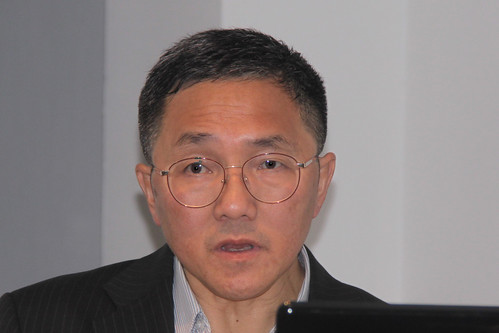Thailand as Buddhist majority country can be tolerant of other religions as long as Buddhism is not criticized, questioned or violated, said Dr. Thongchai Winichakul, Professor of History at the University of Wisconsin-Madison, at a lecture on Buddhist-Christian Controversies and Comparative Religion in Siam in the 1850s-1980s, held at the Siam Society on July 16. He said that this hypothesis is based on the historical controversy that occurred between Buddhism and Christianity in Thailand.

Dr. Thongchai Winichakul
Thongchai mentioned that freedom of religion in Thailand is guaranteed, and Thais are tolerant to all religions, but this freedom and tolerance only works when Buddhism is not offended or criticized. “At that limit, Thai Buddhists fight to reaffirm the superiority of their religion.”
The Butxa Visatxana text, a question and answer in Thai, was revised and republished by the Catholic Mission in Thailand in 1958. Since the text said that Christianity is superior to Buddhism, the Thai authorities took it as a threat to national security and it led to a huge gathering at Chulalongkorn University.
“It was one of the large-scale events of the day,” said Thongchai. “It showed the reaction against the threat from Christianity.”
The book mainly compared differences between Catholic Christianity and Buddhism, attacking Buddhism on many points in order to establish the idea that Catholicism is better than Buddhism, a religion without God. “Buddhism was something wrong in the eyes of Catholics,” Thongchai said.
Bishop Pallegoix firstly published Butxa Visatxana in 1844 dealing with religious matters, such as death, judgment, rebirth, salvation, and so on. Only the first chapter of the book looked down on Buddhism.
“It begins with God and creation explaining that the Buddha was actually a saint, but definitely not the true God,” said Thongchai. “This argument actually hadn’t changed since the first edition when the modified version was published in 1958.”
Thongchai still hasn’t found the original version of Butxa Visatxana published in 1844 and the one translated into Thai, Maha Gangwol, or Great Concern in English, which was published six years later.
“I only found the 1894 edition and Thai version of 1897, but not Maha Gangwol,” said Thongchai. “Maha Gangwol disappeared, but at least the book was known as Maha Gangwol until the 1960s.”
His explanation believes this is the result of the thinking of the Catholic Mission in Thailand after the gathering in 1958. “I believe they have it, but they just don’t want any more trouble. It causes so much controversy.”
Prachatai English is an independent, non-profit news outlet committed to covering underreported issues in Thailand, especially about democratization and human rights, despite pressure from the authorities. Your support will ensure that we stay a professional media source and be able to meet the challenges and deliver in-depth reporting.
• Simple steps to support Prachatai English
1. Bank transfer to account “โครงการหนังสือพิมพ์อินเทอร์เน็ต ประชาไท” or “Prachatai Online Newspaper” 091-0-21689-4, Krungthai Bank
2. Or, Transfer money via Paypal, to e-mail address: [email protected], please leave a comment on the transaction as “For Prachatai English”
